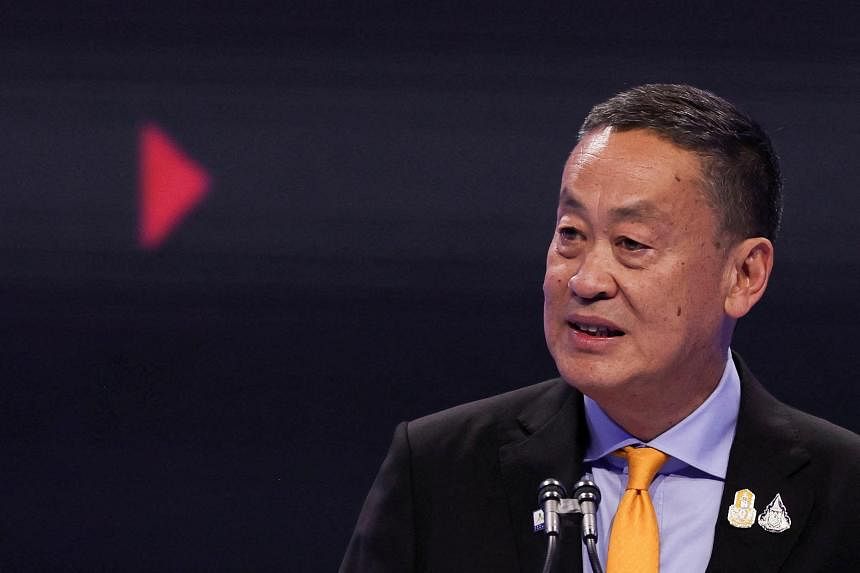BANGKOK – Thailand is steering an initiative for a joint visa programme with five other countries that together hosted about 70 million tourists in 2023, as Prime Minister Srettha Thavisin ramps up initiatives to attract more long-haul and high-spending travellers.
Mr Srettha – who has pledged to elevate Thailand’s status as a tourism hot spot into an aviation and logistics hub – has discussed the Schengen-type visa idea with his counterparts in Cambodia, Laos, Malaysia, Myanmar and Vietnam in recent months. The facility is meant to ensure seamless mobility for travellers among the six neighbouring countries.
The Schengen visa allows free travel around the border-free zone within Europe.
With most of the six countries’ leaders positively responding to the single-visa concept, tourism-reliant Thailand aims to generate more revenue per traveller and cushion its economy from headwinds such as sluggish exports and weak global demand that has hurt its manufacturing industry.
The six South-east Asian nations reported a combined 70 million foreign tourist arrivals in 2023, according to official data. Thailand and Malaysia accounted for more than half of the tally, generating about US$48 billion (S$65 billion) in tourism revenue.
The single-visa idea is the most ambitious among Mr Srettha’s line-up of tourism initiatives but targeted for the long term. The industry has served the country well, accounting for about 20 per cent of total jobs and making up about 12 per cent to the nation’s US$500 billion economy.
Barring the pandemic years, tourism has flourished and provided a cushion against a slump in manufacturing and exports, the traditional bulwarks of the economy.
The tourism industry is upbeat, with Ms Marisa Sukosol Nunbhakdi, a former president of the Thai Hotels Association, saying “a common visa could entice long-haul travellers to make an easier decision”. The visa validity will need to be extended to 90 days from the usual 30-day period to make it attractive, she said.
Mr Srettha’s administration has set a goal of attracting 80 million tourists by 2027. And since taking power about seven months ago, his government has signed a reciprocal visa waiver deal with China – Thailand’s largest market for tourists – and offered temporary visa waivers for travellers from India, Taiwan and Kazakhstan.
It is also mulling over a plan to open casinos inside large entertainment complexes and event-based tourism that will help the country generate more revenue.
If done right, the benefits of visa-free travel will not be confined to tourism alone, as ease of travel would be a boon for business travellers and trade, according to Mr Bill Barnett, managing director of hospitality and property consultancy C9 Hotelworks.
But a Schengen-type visa may be an uphill task given Asean’s poor track record in expediting multilateral policy framework and the group’s standing as a talk shop.
“Country by country seems to be the best way to do it,” Mr Barnett said. “Bilateral agreements, where governments are leading the way for this type of thing, make a lot of sense as they are looking outward and not inward.”
For a joint visa scheme, approvals have to be coordinated and the absence of standard immigration criteria among participating nations, unlike in the European Union, can pose challenges, according to Professor Thitinan Pongsudhirak from Chulalongkorn University’s political science faculty.
Asean as a grouping is a divided body with a poor immigration record, he said.
With Mr Srettha being neophyte in politics, he may lack the clout to push through the joint visa proposal, Prof Thitinan added.
“All the various things he’s been trying to do, I see it as picking low-hanging fruits and picking fruits off the ground,” Prof Thitinan said. “Sometimes, fruits on the ground are rotten.” BLOOMBERG

